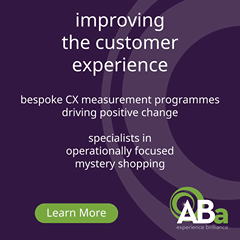Responsible business: Navigating ESG challenges in the circular economy
One critical aspect of ESG that is gaining attention is the transition to a circular economy and the need for enhanced product traceability.
Here, Charlotte Rees John, from Irwin Mitchell, explains why it’s so important for the retail sector.
The transition from a linear economy (take, make, dispose) to a circular economy (reduce, reuse, recycle) is a fundamental shift. Businesses, including those working in retail, are increasingly recognising the importance of minimising waste, conserving resources, and extending the life cycles of products. This change necessitates a holistic approach to product design, manufacturing, and disposal.
Product traceability is a natural companion to the circular economy. Consumers, regulators and investors now demand greater transparency regarding the environmental and social impact of products. They want to know where materials come from, how products are made, and what happens to them after use. Traceability allows everyone to understand the journey of a product, from its origin to its end of life, and make more informed decisions when deciding what to buy – and who from.
What are the challenges for businesses?
Supply chain complexity: many businesses have complex global supply chains, making it challenging to trace the origins of raw materials. Ensuring responsible sourcing and ethical practices throughout the supply chain can be a significant challenge.
Data management: gathering and managing data on product traceability can be complex and resource-intensive. Consider what systems and processes your business may need to collect, analyse, and report this information effectively.
Consumer expectations: consumers are becoming more conscious of ESG issues. They expect you to provide clear information about a product’s environmental and social impact. Meeting these expectations while maintaining consumer trust is a delicate balancing act.
Regulatory compliance: regulations related to product traceability and circular economy practices are evolving. Your business must stay compliant with these changing standards, which can vary by region.
What actions should your business take?
Supply chain transparency: embrace transparency in your supply chain. Work with suppliers who share your commitment to responsible sourcing and ethical practices. Consider blockchain technology, which can provide immutable records of product origin.
Sustainable design: redesign products with a focus on durability, repairability, and recyclability. Ensure that products have a clear end-of-life plan, whether through recycling, refurbishment, or responsible disposal.
Data collection and reporting: invest in data management systems that track and report product traceability data accurately. Make this information readily available to consumers through labels, QR codes, or online platforms.
Consumer education: educate consumers about the benefits of circular economy practices and product traceability. Transparency can build trust and loyalty among customers who appreciate your commitment to sustainability.
Collaboration: collaborate with industry peers, NGOs, and governments to develop industry-wide standards and best practices for product traceability and circular economy initiatives. Collective efforts can drive systemic change.
Examples from the consumer sector:
- Home furnishing: IKEA has embraced circularity by encouraging customers to return old products for recycling or repurposing in return for credit that they can use in store. The Swedish brand have then made these pieces available for purchase through ‘re-shop and re-use’ – an online and in-store area, where customers can be discontinued, second-hand or ex-display products.
- Food and beverage: companies like Nestlé have made significant strides in product traceability by using blockchain technology to trace the origins of ingredients. Consumers can scan a QR code to access detailed information about the product’s journey.
- Electronics: tech giant Apple has invested in product recycling and refurbishment programs. They emphasize the importance of extending the life of devices and offer trade-in options for old products.
Want to read more? This article is one of 10 to appear in Irwin Mitchell’s latest ESG what’s now what’s next guide.














